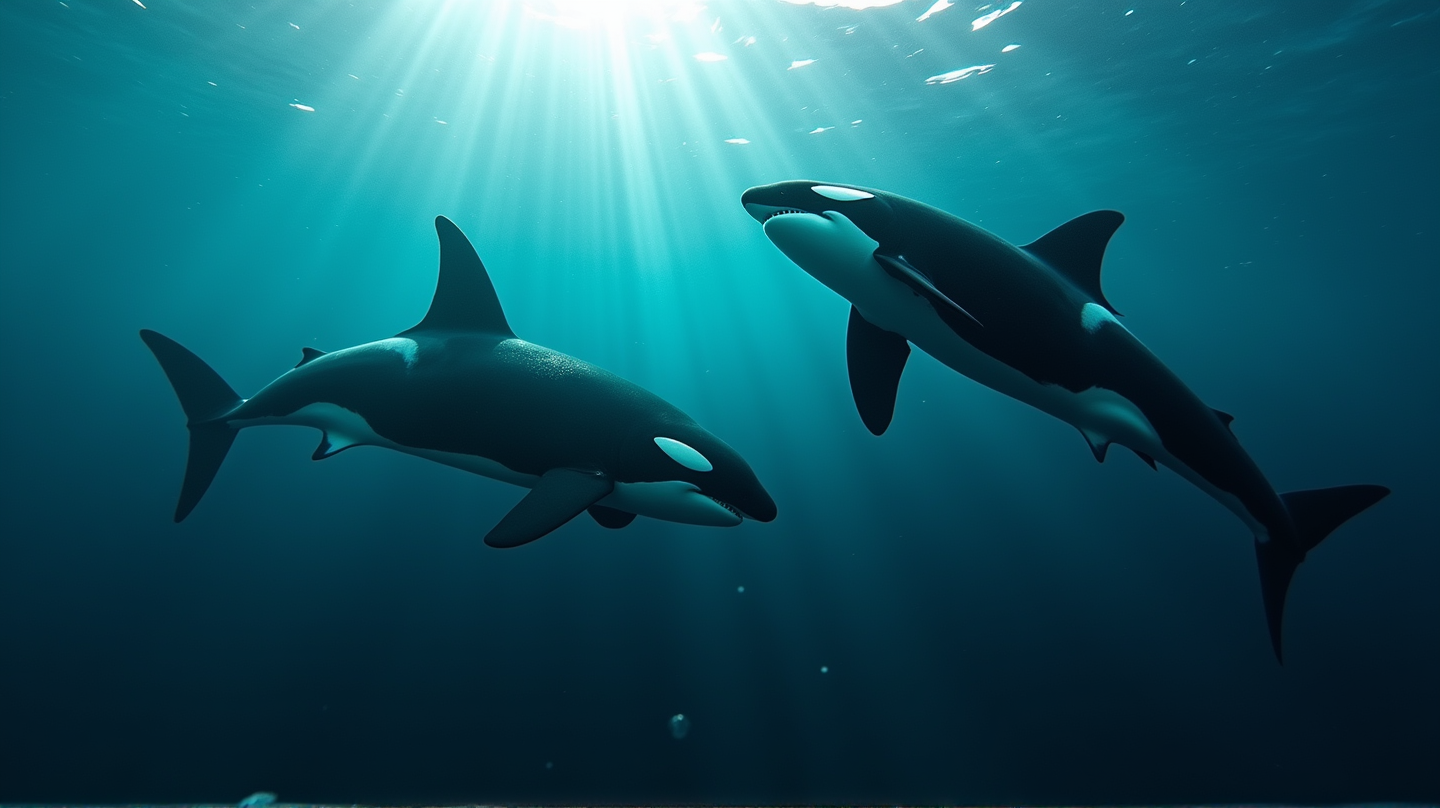The Apex Predator’s New Challenger
In recent underwater encounters, a specialist pod of orcas known as Moctezuma’s pod, has demonstrated unparalleled intelligence and strategy in hunting young great white sharks. Captured in the Gulf of California, these apex predators are now seen uniquely flipping sharks upside down to extract their energy-rich livers. Could this be the dawn of a new hunting era for orcas?
Tactical Genius: Flipping the Script on Sharks
Marine biologists have spotted these taciturn hunters engaging in expert maneuvers against juvenile sharks, taking them by surprise. As the orcas push the sharks onto their backs, they induce a paralytic state called tonic immobility, rendering the young predators helpless. This meticulous strategy enables the orcas to feast on the sharks’ nutrient-dense organs, leaving only the carcass behind. Such behavior highlights the orcas’ profound cognitive abilities, potentially changing the dynamics within the marine food chain. According to Frontiers, this could mark a pivotal shift in our understanding of predator-prey relationships.
Unraveling the Orca’s Playbook
During routine monitoring, researchers documented the precise sequences of two hunts. The Moctezuma’s pod worked in seamless coordination, with individual orcas identified by unique dorsal features. Their strategy seems to maximize their hunting efficiency while minimizing risk, particularly when engaging smaller, less wary juvenile sharks. As Dr. Salvador Jorgensen notes, these young sharks might simply lack the survival instinct or experience their older counterparts have developed.
Climate Impacts: A Catalyst for Changing Predatory Dynamics
The shifting nursery grounds of white sharks due to climate events such as El Niño may have inadvertently exposed more vulnerable juveniles to these master hunters. Moctezuma’s pod may capitalize on these changes, exploiting seasonal opportunities to secure abundant prey. The broader ecological implications suggest an adaptive predator, poised to expand its dietary repertoire and hunting grounds as environmental conditions evolve.
The Road Ahead: Scientific Inquiry and Conservation Efforts
While these initial observations lay the groundwork, the path forward requires extensive surveying to ascertain the frequency and scope of such hunts. Scientists aim to codify these findings into conservation strategies, enhancing our capacity to safeguard critical marine habitats and mitigate human impacts. “Generating information about the extraordinary feeding behavior of killer whales in this region will lead us to understand where their main critical habitats are,” emphasizes Dr. Francesca Pancaldi.
With eyes and lenses now turned toward the sea, this enigmatic display of predation opens new chapters in marine biology, inspiring deeper inquiry into the remarkable capabilities of the ocean’s formidable predators.
